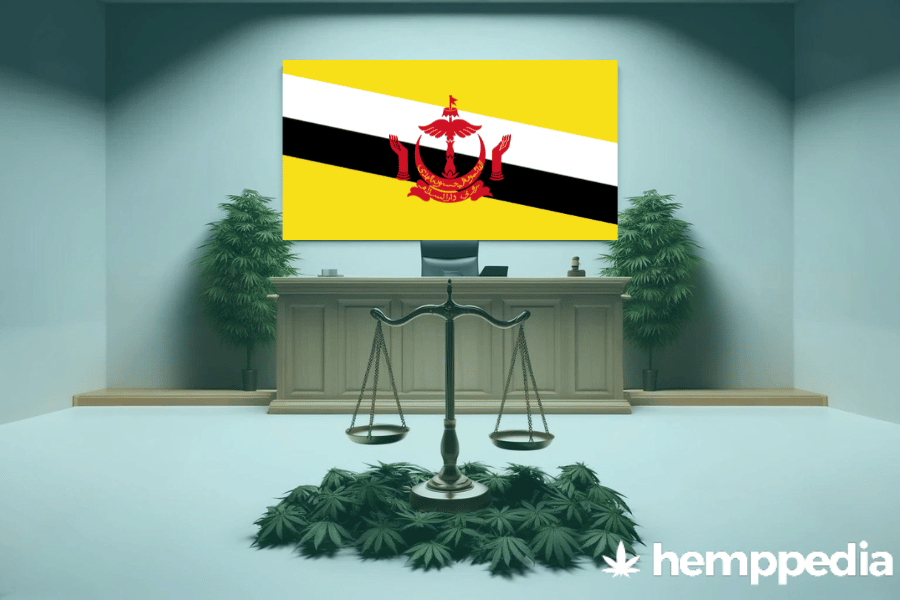TL;DR – Is CBD Legal in Brunei?
Before we delve into in-depth details, it’s important to understand the overarching legal status of Cannabidiol (CBD) in Brunei. In this Southeast Asian country, the use and possession of substances derived from the cannabis plant, including CBD, are strictly illegal under current legislation, regardless of THC content or intended purpose.
These are a few essential points one should take note of:
| Key Aspects | Status |
|---|---|
| Usage | Illegal |
| Possession Limit | None (illegal) |
| Legal Distinctions from THC Products | No distinction (all are illegal) |
Overview of CBD Legislation
Defining Key Terms
Cannabidiol (CBD) is one of the many compounds found in the cannabis plant. Unlike its psychoactive cousin, THC, CBD doesn’t cause a ‘high’. The source of CBD defines whether it’s derived from ‘Marijuana’ (high THC cannabis plant) or ‘Hemp’ (low THC cannabis plant). Levels of THC in CBD products may vary, and this is often categorized as ‘full-spectrum’ (all compounds in source plant) or ‘isolate’ (pure CBD).
Legal Landscape
Globally, the legal acceptance of CBD varies widely. However, Brunei maintains strict anti-drug laws, prohibiting all cannabis-derived products.
Legal Status
Brunei’s Misuse of Drugs Act classifies cannabis, its salts, derivatives, and similar synthetic preparations as Class A controlled drugs, making the use, sale, or possession of CBD illegal.
Regulatory Bodies
The Narcotics Control Bureau (NCB) is the primary authority responsible for enforcing drug control laws, including those related to CBD in Brunei.
Conditions and Restrictions
There are no exceptions in Bruneian legislation pertaining to cannabis-derived substances, including hemp-derived CBD, regardless of its THC content or its form (oils, topicals, edibles).
Historical Context
Brunei has maintained a zero-tolerance stance towards narcotics, including cannabis and its derivatives like CBD, since the enactment of Misuse of Drugs Act in 1978.
Possession, Use, Cultivation, and Sales
In stark contrast to some parts of the world where CBD is legal and regulated, Brunei prohibits possession, use, cultivation, and sales of CBD products. As per current legislation, import or export of CBD is also forbidden.
Enforcement and Penalties
Severe penalties, including imprisonment, fines, or the death sentence, may be imposed for non-compliance with drug laws. The NCB enforces these laws strictly, irrespective of the substance’s intent for medical or non-medical use.
Comparative Analysis
While several nations internationally have accepted and regulated CBD, Brunei’s strict anti-drug legislation sets it apart. This contrasts to countries, like the USA and Canada, where hemp-derived CBD is widely legal and regulated under certain conditions.
Conclusion
The legal situation of CBD in Brunei is not ambiguous – it’s outright illegal. As such, individuals should exercise extreme caution and comply with local laws. It remains unclear when or if Brunei might revisit its position on CBD in light of global trends towards greater acceptance and decriminalization.





